Photo credit: Zach Damberger

Search
Posts de la categoría ‘Events’
Delegates’ Perspectives on the MPPN Annual Meeting 2015
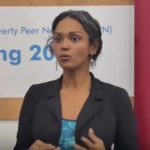 |
 |
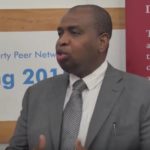 |
| Cherise Adjodha. Programme Analyst. Poverty Reduction Portfolio. Organization of Eastern Caribbean States. | Xiaolin Wang. Director of Research Division. International Poverty Reduction Center. China
|
Musa Jega Ibrahim. Islamic Development Bank |
 |
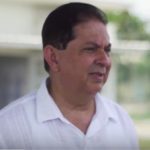 |
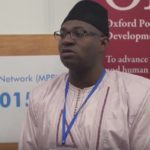 |
| Jose Aguilar. Executive Director, Horizonte Positivo. Costa Rica | Jorge Ramon Hernandez. Minister, General Coordination. President’s Office. Honduras | Ibrahima Dieng. Head of Division. Pro-Poor Policies. Ministry of Economy, Finance and Planning. Senegal
|
 |
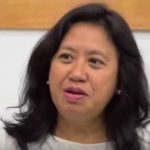 |
 |
| Enver Tasti. Turkish Statistical Institute. Turkey. | Celia M. Reyes. Senior Research Fellow, PIDS and CBMS Network Leader. The Philippines.
|
Bijan Pant. Advisor to the Prime Minister. Nepal. |
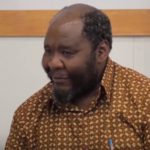 |
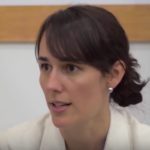 |
|
| Pali Lehohla. Statistician‐General. South Africa | Alexandra Barrantes. Section Chief, Equity Promotion Section. Organization of the American States
|
2015 UNGA | Side Event “Anchoring a Global Multidimensional Poverty Index within the Sustainable Development Goals”
High-level side event at the UN General Assembly, New York
27 September 2015, Conference Room 3 (CR3), 1:15-2:45 pm
At this critical juncture in the process of finalising how the Sustainable Development Goals (SDGs) will be measured, this important side event showed the importance of embedding a multidimensional measure of poverty within the new framework. Specifically the 20 eminent speakers stressed how a Global Multidimensional Poverty Index (MPI), as a core (tier one) indicator within the SDGs, can energise a coordinated, effective and multi-sectoral attack on poverty in all its dimensions (and thus help to measure Target 1.2 of the SDGs).
The event is organised by the Republic of Costa Rica and nearly 40 governments represented by the Multidimensional Poverty Peer Network (MPPN), a South-South network of senior government officials that is championing the use of multidimensional poverty measures alongside traditional income measures at both the national and global levels.
Download the agenda of the event
The speakers included:
H.E. Mr. Wu Hongbo, Under-Secretary-General for Economic and Social Affairs, United Nations who delivered a message from Ban Ki-moon, Secretary General of the United Nations.
Heads of state addressing the event, with excerpts from speeches:
H.E. Luis Guillermo Solís Rivera, President of Costa Rica
H.E. Mr. Tshering Tobgay, Prime Minister of Bhutan
“Bhutan’s national MPI is not only a measure, it is also a tool – a policy tool. We use it to inform our allocation of resources. It identifies people who are poor because of gaps in infrastructure and social services, even where people are not income poor, as in one of our remotest district.”
“I support the call to have a Global MPI as a Tier 1 indicator of the SDGs, and to support others to develop the use National MPIs.”
H.E.Mr. Juan Orlando Hernández, President of Honduras
H.E.Mr. Kenny Anthony, Prime Minister of Saint Lucia
“A Global MPI helps us know and understand poverty better, allows us to compare clearer, and gives us a stronger platform to remove the scourge of poverty from the human family.”
“The multidimensional poverty index finally gives us a tool to measure poverty across borders, across ideologies, across peoples. Let us redeem our brothers, sisters and every human being from the bondage of poverty. Now that we have proclaimed and committed to this hope, let us make it real for all humanity.”
The other distinguished speakers were:
H.E. Dr. Arsenio Balisacan, Socioeconomic Planning Secretary of the Philippines
H.E. Tatyana Orozco de la Cruz, Director of the Department for Social Prosperity of Colombia
H.E. Jeff Radebe, Minister in the Presidency for Planning, Monitoring and Evaluation, South Africa
H.E. Marcos Barraza Gómez, Minister of Social Development of Chile
H.E. Mr. Dang Huy Dong, Deputy Minister, Ministry of Planning and Investment of Vietnam
“Vietnam’s headline MPI will give visibility to our social progress. Vietnam is well-known for its high rate of economic growth and for its dramatic reduction in income poverty. In fact, our income poverty is very low now. So we need to turn to other basic needs and to social disparities. A headline national MPI will enable us to make the outcomes of our social policy as visible as our economic progress.”
H.E. Cecilia Vaca Jones, Minister Coordinator of Social Development of Ecuador
Dr. Savas Alpay, Chief Economist of the Islamic Development Bank
H.E. Mr Mikheil Janelidze, First Deputy Minister of Foreign Affairs of Georgia
H.E. Amadou Ba, Minister of Economy and Finance, Senegal
Tarek Nabil El Nabulsi, Director of Development and Social Policies Department, League of Arab States (a joint statement with Khalid Abu-Ismail, Chief Economic Policy Section, UN Economic and Social
Commission for Western Asia)
Dr. Ingolf Dietrich, Deputy Director-General, Head of the Special Unit of Post-2015 Agenda, Federal Ministry for Economic Cooperation and Development of Germany
H.E. Mrs. María Luisa Navarro, Deputy Minister for Multilateral Affairs and Cooperation of Panama
Mr. Noam Unger, Deputy Assistant for Policy, Planning and Learning, USAID of the United States
Dr. Gabriel Rivera Conde, Chief Strategic Projects, Office of the President of Mexico
“The multidimensional approach to poverty in Mexico has shown that such a measure is actually feasible and that it can become an essential tool for implementing and monitoring the evolution of all the multiple dimensions of poverty.”
L-R: H.E. Mr. Tshering Tobgay, Prime Minister of Bhutan; H.E. Mr. Juan Orlando Hernández, President of Honduras; H.E. Mr. Luis Guillermo Solís Rivera, President of Costa Rica
L-R: H.E. Marcos Barraza Gómez, Minister of Social Development of Chile; H.E. Dr. Arsenio Balisacan, Socioeconomic Planning Secretary of the Philippines; H.E. Tatyana Orozco de la Cruz, Director of the Department for Social Prosperity of Colombia
Photo credit: Zach Damberger
Videos and Presentations from the MPPN 2015 Meeting
The third annual meeting of the Multidimensional Poverty Peer Network was hosted by the Government of Colombia from 2-3 June 2015 in Cartagena. More than 100 policymakers and senior officials came together for the two-day meeting to discuss developing and applying multidimensional poverty measures.
Keynote Speeches
|
Colombia
|
President Juan Manuel Santos of Colombia | Keynote Speech |
| Costa Rica |
Ana Helena Chacón Echeverría, Vice-president of Costa Rica | Estrategia Nacional para la Reducción de la Pobreza |
Round Table Discussion: Colombian Ministers Share their Experiences of Working with the MPI
Setting the Stage: Introduction to the MPPN Meeting
| OPHI
|
Dr Sabina Alkire, OPHI/George Washington University | Introduction to the MPPN Meeting |
Sharing of Practice on Multidimensional Measurement
The Global Stage
| OPHI |
Dr Sabina Alkire, OPHI/George Washington University | The SDGs and the windows they open |
Designing and Communicating the MPI
| Colombia |
Laura Estrada, Departamento Administrativo Nacional de Estadística | Prácticas de Comunicación: Experiencia Colombiana |
Practical Applications and Case Studies
2015 UNSC | MPPN Side Event at UN Statistical Commission
OPHI and the Multidimensional Poverty Peer Network – a group of senior representatives from over 40 governments and international institutions – hosted a special side-event on multidimensional poverty measurement at the 46th session of the UN Statistical Commission on Monday 2 March 2015.
The side event, which was standing-room only, highlighted how multidimensional poverty measurement can help to ‘end poverty in all its forms everywhere’ – a key component of the first goal of the final Open Working Group proposal for the Sustainable Development Goals (SDGs) and of the Secretary General’s Synthesis report.
Featuring presentations by eminent panelists and discussion among all participants, the event demonstrated how national MPIs and an improved Global Multidimensional Poverty Index (the MPI 2015+), supported by a data revolution, can help to eradicate extreme poverty post-2015 as part of the core poverty indicators of the SDGs.
The MPI 2015+ complements income poverty measures and shines a high-resolution lens on poverty, showing who is poor and revealing the different types of disadvantage that each poor person experiences at the same time – for example, poor sanitation, malnutrition, unemployment or a lack of education – to ensure the SDGs ‘leave no-one behind’.
Multidimensional poverty measures have generated substantial interest and support in recent years. The governments of Mexico, Colombia, Bhutan, the Philippines, Chile and the state government of Minas Gerais (Brazil), and Ho Chi Minh City (Vietnam), use official multidimensional poverty measures, while many other governments are in the process of developing or exploring their use.
Presentations from the panellists at the event are available to download below:
-
Lisa Bersales, National Statistician and Head of Philippine Statistics Authority
-
Gonzalo Hernández, Executive Director, CONEVAL, Mexico
-
Yemi Kale, Statistician General of the Federation and Chief Executive Officer, National Bureau of Statistics, Nigeria
-
Pali Lehohla, Statistician General, Government of South Africa
-
Pablo Tactuk, Director of the National Statistics Bureau of the Dominican Republic
-
Félix Vélez Fernández Varela, Vice-President, Governing Board, National Statistical and Geographic Institute (INEGI), Mexico
-
Sabina Alkire, Director, Oxford Poverty and Human Development Initiative, University of Oxford
Further information
Read more about the Global MPI 2015+ in the SDGs.
Download OPHI’s 4-page briefing document: Multidimensional Poverty Index 2015+.











































Recent Comments